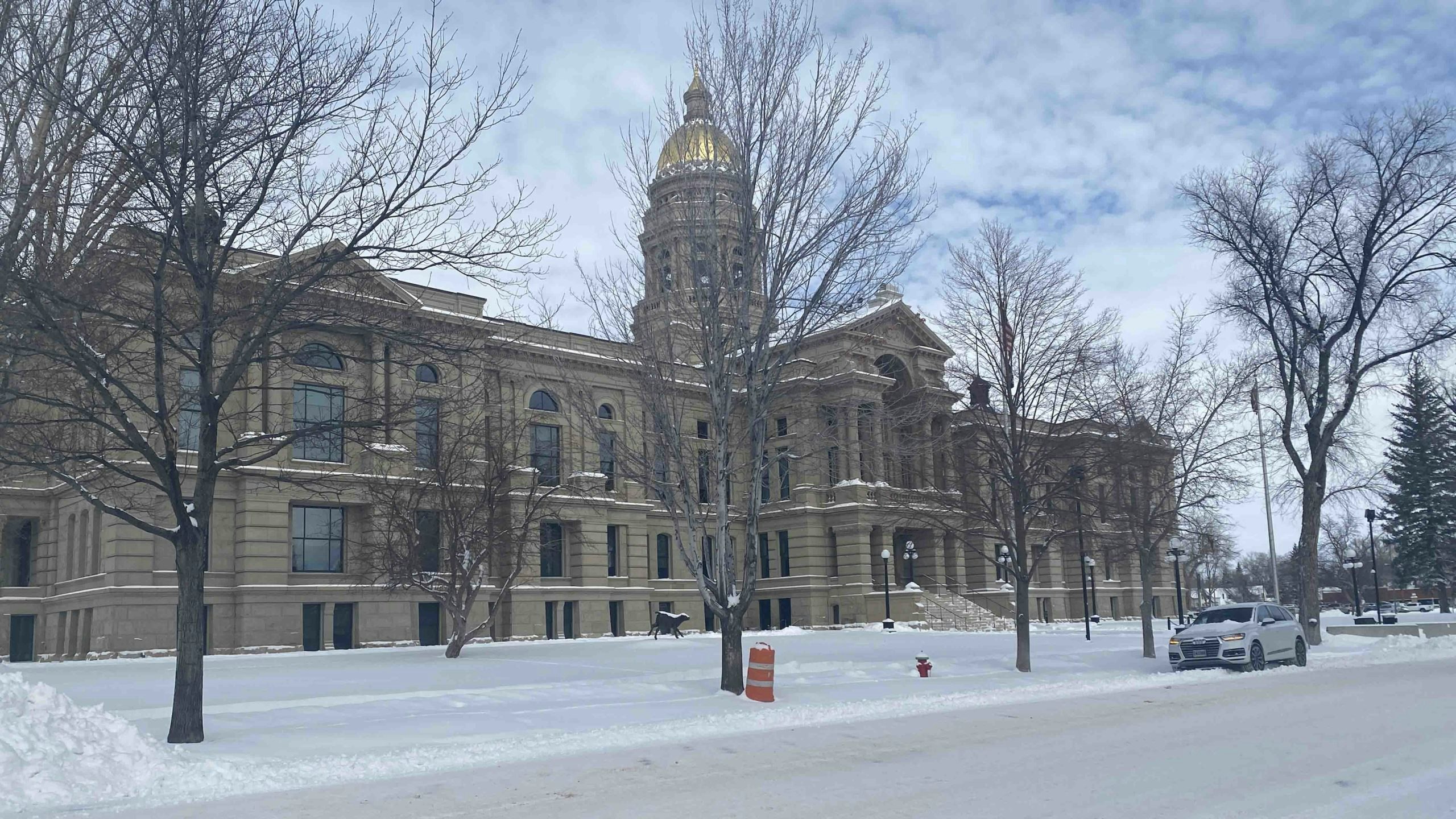The Wyoming Senate is slated this week to hear the second of two proposed laws aimed at making non-native families the last resort for placing American Indian foster children.
If it passes the Senate, House Bill 19 would establish a task force geared toward developing a state version of the federal Indian Child Welfare Act.
The U.S. Supreme Court could overturn or modify the federal Indian Child Welfare Act this June after non-native guardian families caring for native children alleged that the law is discriminatory and puts tribal political interests over the best interests of children.
The families also question whether the federal law is an overreach into the states’ sovereignty.
State Version Underway
In response to the challenge, Wyoming lawmakers have advanced a bill that would codify the federal law into state statute. Senate File 94 has passed the Senate but has not been heard by the House.
House Bill 19 establishes a task force to tweak the law, passed the House last week and survived its first Senate committee vote Monday with a 3-2 approval over detractors’ concerns that codifying the federal law is premature in light of the Supreme Court challenge.
Rep. Lloyd Larsen, R-Lander, told the Senate Labor, Health and Social Services Committee that he sponsored HB 19 because there are parts of the federal law that Wyoming lawmakers may want to revise while making a state version.
“Even if the Supreme Court doesn’t do anything, I think the evaluation of the law … is a very valuable exercise we should consider,” said Larsen.
When the Select Tribal Relations Committee first floated the idea in 2022 of adopting a state version of ICWA, its only proposition was HB 19.
But after the Eastern Shoshone Tribe’s government rebuked the task force bill as a way of dragging things out and denying the tribe sovereignty over its children, Sen. Affie Ellis, R-Cheyenne, crafted SF 94, which would codify the federal ICWA law by July 1.
Ellis spoke in favor of HB 19, however, telling the Labor Committee that it’s a useful companion bill because it could be used to address concerns brought forward by families about ICWA.
“We did hear, and we will hear, examples of kids who have been treated horribly, and that’s why it is imperative we really look at (the law) and see if we can be doing anything better, and working with our tribes better” said Ellis.
The federal law was written in 1978 due to harsh federal assimilation policies by which many native children were taken from their tribes and forced to behave as nonnatives.
Premature?
Sen. Anthony Bouchard, R-Cheyenne, said he’s concerned that both ICWA bills are premature.
“I would feel better if we didn’t pass the other law (SF 94) first,” he said. “I’m not getting why the rush to do this now. Why aren’t we just waiting for the Supreme Court to make its decision?”
Bouchard voted against SF 94 on its third reading in the state Senate after other legislators highlighted its possible equal protection violation.
Ellis said that if a state ICWA law is in place when the Supreme Court decision emerges, it could limit “confusion” by state and tribal departments of family services as they consider how to handle American Indian children in protective services cases.
Currently, the federal ICWA gives an American Indian child’s tribe the right to intervene in his or her custody case. The law also mandates that the child should be fostered first with a family member, or member of his or her tribe, or member of any American Indian tribe before being placed with a non-native family.
Bouchard and Sen. Lynn Hutchings, R-Cheyenne, voted against HB 19 during the committee meeting, while Sens. Fred Baldwin, R-Kemmerer; Eric Barlow, R-Gillette, and Dan Dockstader, R-Afton, voted in favor of it.
If the bill passes into law, the task force would cost the state $40,000 and would consist of:
• Two delegates each from the Northern Arapaho and Eastern Shoshone Tribes.
• Four state lawmakers.
• One private attorney familiar with tribal child protection cases.
• The director of Wyoming Department of Family Services.
• One county or prosecuting attorney of Gov. Mark Gordon’s choice.
Because of the monetary appropriation attached to the bill, it must next survive a vote in the Senate Appropriations Committee before reaching the Senate floor.





